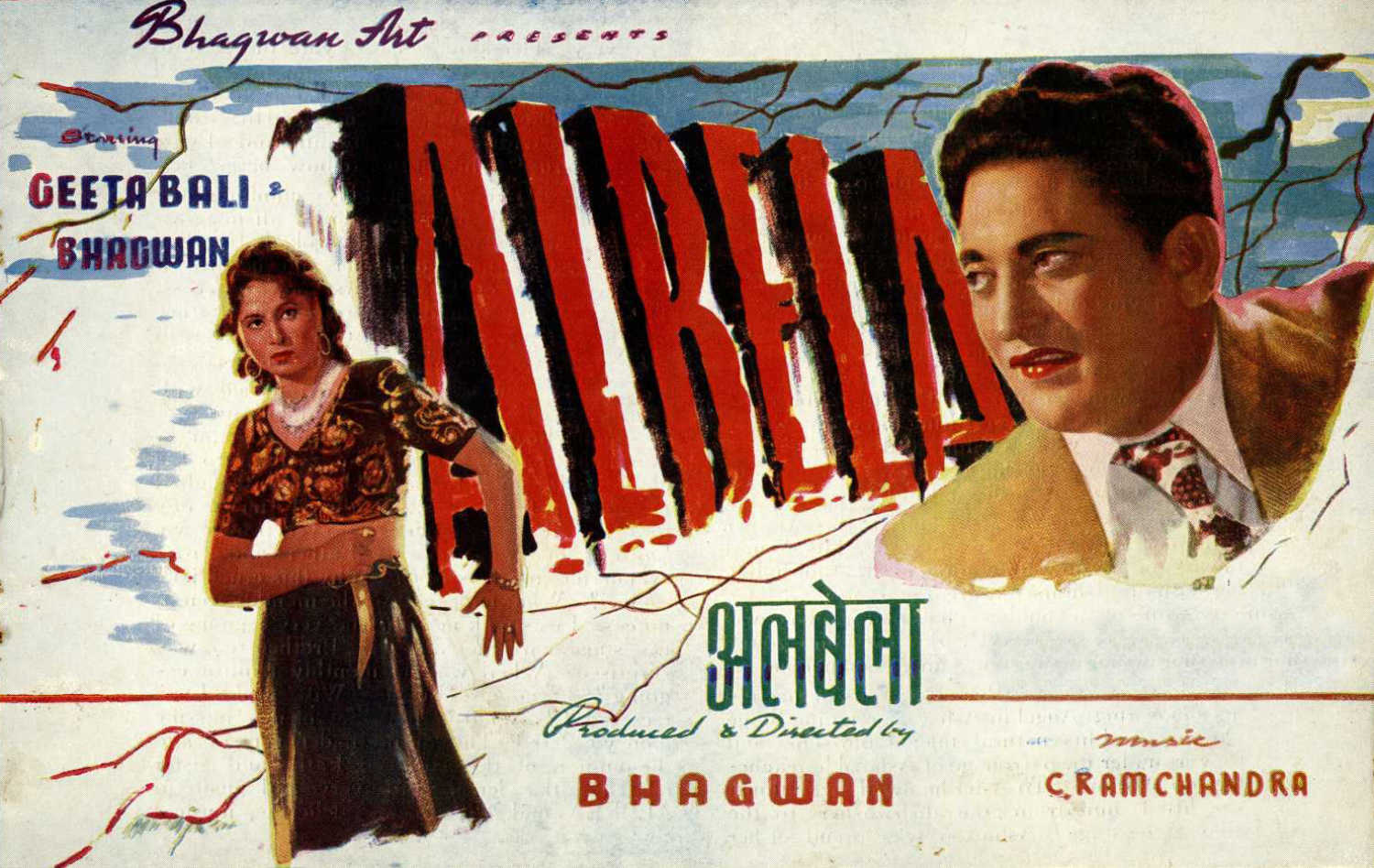Even 70 years after its release on 14 December 1951, the film is testimony to the innovative dancing prowess of its writer, producer, director and leading man.
Remembering the unmatched grace of Bhagwan Dada in Albela (1951)
New Delhi - 14 Dec 2021 16:09 IST


Sukhpreet Kahlon
Long before Hrithik Roshan burst on the scene with his fluid dance moves, there was another dancing star known for his definitive style which inspired several actors who followed. That was the Marathi actor Bhagwan Palav, who later became known as Master Bhagwan or Bhagwan Dada.
Although the first famed male dancer in Hindi films was Mumtaz Ali, the late actor-filmmaker Mehmood’s father, who had his own troupe called Mumtaz Ali Nites, Bhagwan rose to fame as the dancing star of Hindi cinema, who went on to influence actors like Amitabh Bachchan, Mithun Chakraborty and even Govinda.
Produced and directed by Bhagwan, Albela (1951) starred him in the lead role and was also written by him with Ehsan Rizvi. Bhagwan made the film on the advice of actor-filmmaker Raj Kapoor, who encouraged the actor, best known for stunt action films, to make a romantic musical. The film co-starred Geeta Bali, Pratima Devi and Dulari and with the famed C Ramchandra as its music composer, the songs were all the rage.
Pyarelal (Bhagwan) is a simpleton with starry dreams in his eyes. He works as a clerk in an office, but his impromptu theatrical performances do not go down well with the manager, who throws him out.
Pyarelal’s family is in need of money to get his sister married and is disappointed when he ceases to have a job. Pyarelal meets actress and dancer Asha (Geeta Bali), who spots his talent and gives the newcomer a chance. While Pyarelal climbs the ladder of success, his home is struck by tragedy. His mother passes away. Thrown into abject poverty, the family is further preyed upon by Pyarelal's brother-in-law.
When Pyarelal returns home, he learns the truth about his family’s situation and his brother-in-law’s devious ways. Another twist of fate takes place till, finally, he is reunited with his loved ones.
The film is an out-and-out Bhagwan vehicle. In one scene, as an aspiring actor Pyarelal wishes to showcase his talent and emotes according to different genres — tragedy, comedy and drama. Albela feels similar, with a sprinkling of genres thrown in. The threat of violence towards the end is definitely disturbing and comes out of the blue, but all’s well that ends well.
Sadly, the vivacious Geeta Bali has little to do in the film other than play a character who provides the glamour quotient and lies down like a doormat for the man she loves.
The highlights of the film are certainly C Ramchandra’s music, the lilting melodies and Bhagwan’s graceful dance moves. The film, released on the same day as Raj Kapoor's Awara (1951), was a huge musical hit and ran for 50 weeks, making it the actor’s most successful film as producer and director.
The music composer and the actor had a long association that complemented Bhagwan’s on-screen persona beautifully. The story goes that while doing bit roles in films, C Ramchandra had a chance meeting with Bhagwan, another Marathi-speaking actor. Bhagwan had a financier who wanted to make a film in Tamil. He asked Ramchandra to compose the music for him and thus two Tamil-language films, Jayakodi (1940) and Vanamohini (1941), both directed by Bhagwan, became Ramchandra’s earliest films as music composer!
The two then came together for what was to be Ramchandra’s debut Hindi film as composer, Sukhi Jeewan (1942), also directed by Bhagwan. Ramchandra’s use of Western instruments along with the mischievous strain in his songs made them the perfect foil to the actor’s on-screen characters and antics.
Together, they introduced Indian audiences to new sounds and Bhagwan was the first actor to dance to Latin American beats in Hindi music, swaying gently and gracefully to the undulating music. The songs from Albela were such a rage that audiences would dance, clap and even toss coins at the screen in sheer excitement. ‘Bholi Surat Dil Ke Khote’ and ‘Shola Joh Bhadke’ sung by Lata Mangeshkar and Chitalkar (as the music director was credited when singing) were especially popular.
The stupendous success of the film brought Bhagwan great fame and wealth. But it was followed by the failure of successive projects, including the follow-up films Jhamela (1953) and Labela (1966), both of which were miserable flops. Combined with Bhagwan's poor financial decisions, this drove the star to bankruptcy.
Despite his enduring popularity and brief flash of stardom, Master Bhagwan died in penury. The Marathi-language film Ekk Albela (2016), based on the actor’s life, retraced the journey of his rise and fall.




